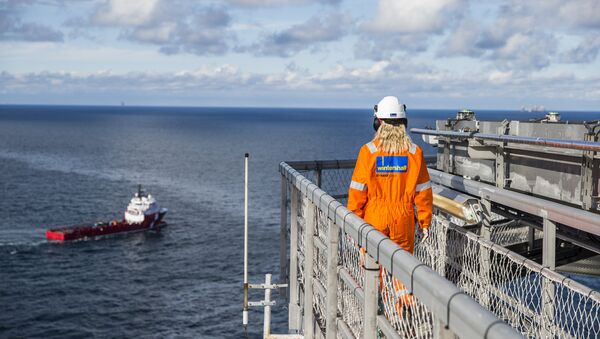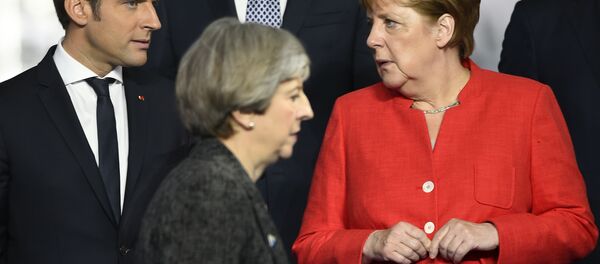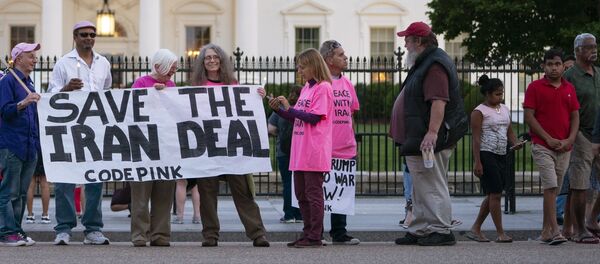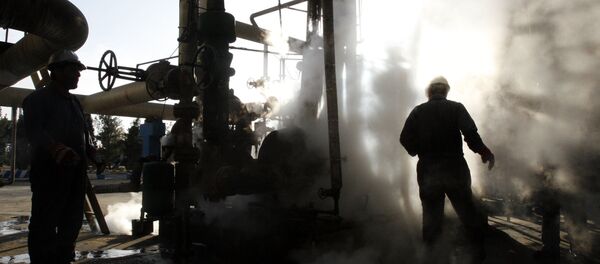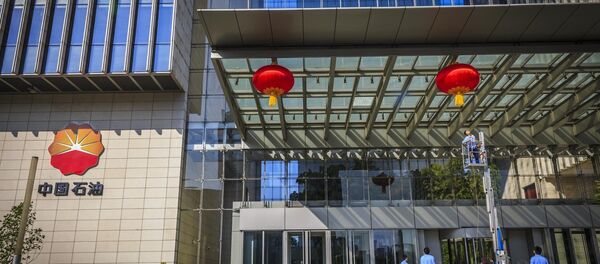Washington's unilateral withdrawal from the Joint Comprehensive Plan of Action (JCPOA), commonly known as the Iran nuclear deal, and the subsequent resumption of sanctions could complicate international trade with the Islamic Republic.
Sputnik has surveyed 42 companies in Germany, Austria and Switzerland involved in trade with Iran, asking whether they would maintain cooperation with the Islamic Republic at the expense of their business activity in the US or yield to Washington's pressure.
While the answers were different, all the companies demonstrated a cautious approach.
The Swiss concern ABB, headquartered in Zurich, with a total turnover of about $33 billion in 2016 responded:
"We are scrutinizing the statement regarding US sanctions against Iran. We will continue to comply with all trade regulations and do not expect that the [US] announcement will have a significant impact on ABB."
The company has been operating in the Islamic Republic of Iran (IRI) since 1959 and owns a plant to the north-west of Tehran producing polyurethane.
Bayer AG, headquartered in Leverkusen, appears to be calmer. Its response indicates that it could overcome the loss of the Iran business if necessary:
"The share of Iran business in Bayer's total sales last year was insignificant," the company, whose trade turnover amounted to 35 billion euros ($40.9 billion) last year, said. "Our products are aimed at providing the [Iranian] population with medicines, pesticides and seeds. At the moment, we are assessing the potential short- and medium-term impact of recent developments on our business. In any case, Bayer will adhere to the rules in cooperation with Iran."
It is unknown whether Burckhardt Compression AG, a Winterthur-based Swiss firm, has any important motives that complicate the decision-making process. When approached by Sputnik, the company asked the news agency to be receptive to its laconic response: "At the moment it's too early to comment on this," Burckhardt, a company with a turnover of about $600 million (594 million Swiss francs) in 2017, stated.
Commerzbank also asked Sputnik to show understanding: It declined to comment on the situation at all ("Please understand that we do not comment on your questions"), which could be due to the fact that the Frankfurt bank covers almost 30 percent of Germany's foreign trade.
Commerzbank's comment could instill uncertainty in other companies or even be interpreted as a signal from the federal government, since the German state owns 15 percent of the bank's shares. The bank's balance amounted to 453 billion euros ($529.4 billion) in 2017.
The response from Daimler AG in Stuttgart (164.3 billion-euro turnover in 2017) was also laconic: "We are closely watching the further developments following President Trump's statement on the JCPOA and studying the possible consequences for our business."
Linde AG, one of the world's largest producers of industrial gases, primarily LNG, with a turnover of 17 billion euros ($19.8 billion) in 2017, will probably be unable to put its business in the US at risk: "No comments on all issues," the company stated.
Austrian petroleum company OMV (after investment from Abu Dhabi's International Petroleum Investment Company (IPIC) in 1994, the ÖMV abbreviation was replaced with a simpler variant) with a turnover of more than 22 billion euros ($25.7 billion) in 2017 has seemingly also adopted a wait-and-see approach: "The picture of the Iran sanctions is still murky. So we cannot comment on this."
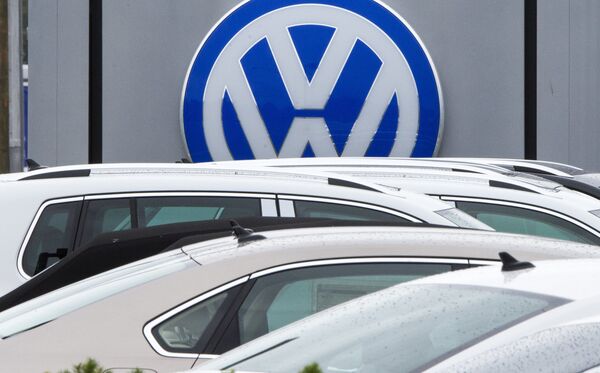
The largest European automaker, Volkswagen AG from Wolfsburg, has significant business interests in the US. However, the company has definitely pinned hopes on the Iranian market:
"Volkswagen started exporting cars to Iran last year. In this regard, we carefully monitor the situation and analyze the development of political and economic factors in the region. However, in general, the following applies: Volkswagen adheres to all applicable national and international export laws and regulations," the statement said.
The most extensive response came from BASF's subsidiary Wintershall, Germany's largest petroleum producer, with a turnover of $3.2 billion (2017):
"Wintershall will analyze the situation. Wintershall has been active in the Middle East region for years. That is why we are closely following the developments in the region, including in Iran. We strictly adhere to all national and international legal regulations. In 2016 Wintershall signed a Memorandum of Understanding (MoU) with the National Iranian Oil Company (NIOC) on potential future cooperation in order to prepare for possible cooperation in the region. The details of the agreement are confidential."
If one compares the companies' responses, one could come to the conclusion that there might be a sort of coordination between the firms operating in Iran, since their arguments are almost identical — they check, observe, analyze, evaluate, etc.
The apparent coordination and the choice of vocabulary cannot be called bad. For most of the companies, their business interests in Iran are not a reason to cross swords with the US. However, the question arises whether it is reasonable to bend under pressure from a foreign government or to defend international principles and values by resisting open blackmail. In the worst case one could face financial losses. This is not an easy decision; apparently that is why the multinational companies have adopted a discreet position and cautious language.
The US unilaterally withdrew from the Iran nuclear deal on May 8. In accordance with Donald Trump's orders, US sanctions against foreign companies cooperating with Iran will come into force after 90- or 180-day wind-down periods.

